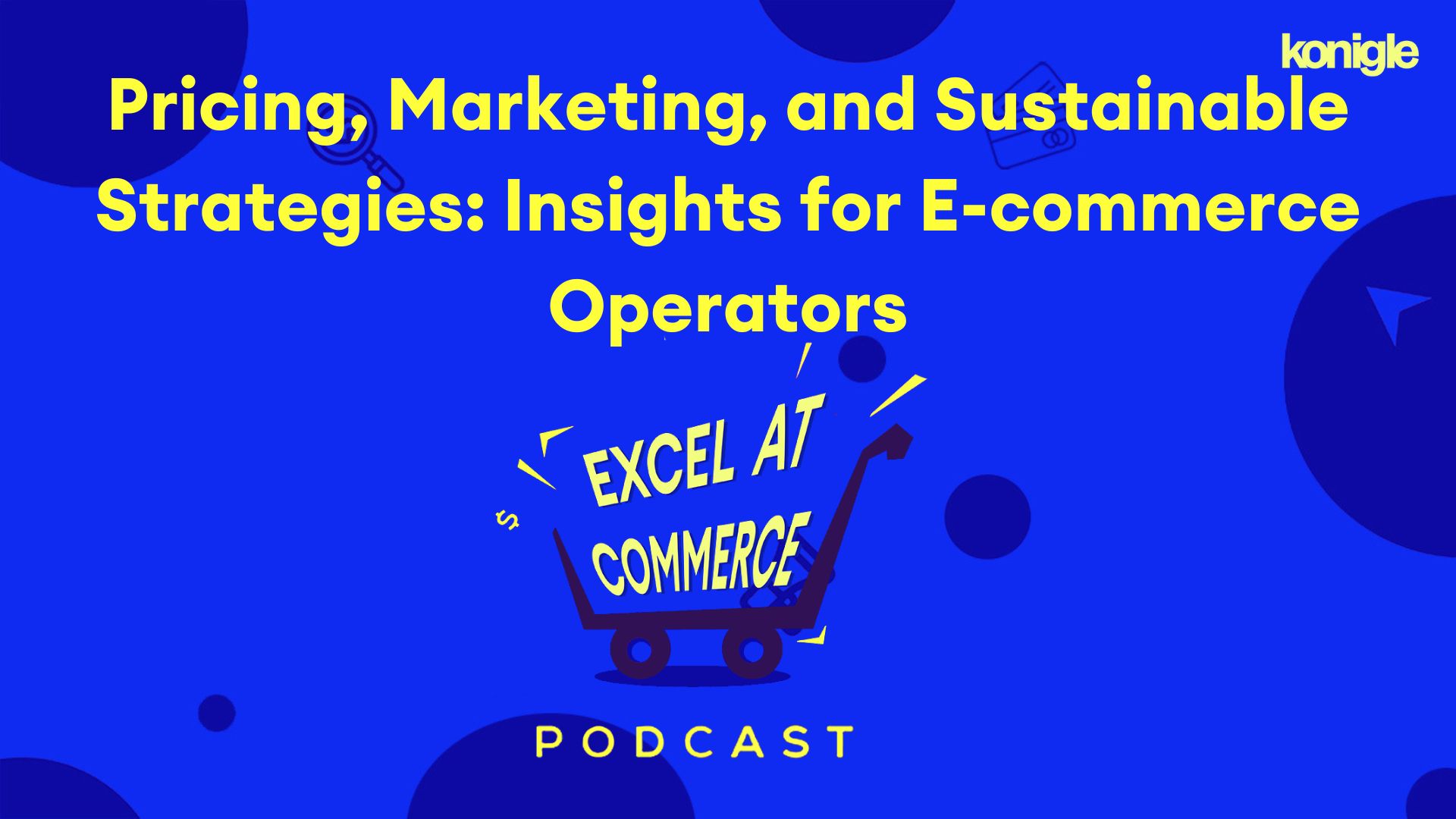Pricing, Marketing, and Sustainable Strategies: Insights for E-commerce Operators

June 26 2023
E-commerce operators need to use data-driven decision making, balance pricing strategies and sustainable practices, and build brand loyalty to ensure long-term success.
Introduction:
Running a successful e-commerce business requires more than just setting up a website and expecting overnight success. In this article, we delve into key insights from industry experts on how e-commerce operators can optimize their business strategies. We emphasize the importance of relying on data-driven decision-making, building brand loyalty through pricing and marketing, and adopting sustainable practices to ensure long-term success.
1. Data-Driven Decision Making for Marketing Success:
The allure of overnight success stories can often mislead e-commerce operators. Instead of chasing shortcuts, businesses should rely on data to make informed marketing decisions. Understanding consumer behavior, preferences, and market trends is crucial for effective marketing campaigns. By leveraging data analytics, operators can identify patterns, target the right audience, and create personalized experiences that resonate with customers. Taking the time to analyze and interpret data is a key investment for sustained growth and improved marketing outcomes.
2. Pricing and Marketing: The Relationship:
Pricing and marketing are intrinsically linked, and a well-executed strategy in both areas can drive business success. When setting prices, it is essential to consider fixed costs (rental, salaries), variable costs (cost of goods, transportation, packaging), and desired profit margins. While profitability is important, it is equally crucial to establish a roadmap to success through storytelling and transparent communication. Sharing information about product origins, unique selling points, and sustainability initiatives can foster brand loyalty and differentiate businesses in the market.
IKEA provides a notable example of successful pricing and marketing integration. Rather than focusing solely on sales and discounts, IKEA prioritizes reducing prices while emphasizing the benefits passed on to customers. By doing so, they build brand loyalty based on their commitment to providing affordable yet quality products. This approach highlights the importance of creating a brand story that extends beyond pricing alone.
3. Sustainable Pricing Strategies:
E-commerce operators face the challenge of balancing customer expectations for sales and promotions with long-term profitability. Participating in frequent sales campaigns may boost short-term sales, but it can erode profits and compromise sustainability. It is crucial to educate brand owners about the necessity of selectively participating in sales events and understanding the impact on their bottom line.
To protect profit margins and maintain brand positioning, e-commerce operators can consider alternative pricing strategies. Flash sales targeted to a specific audience can be cost-effective and help preserve margins. Another approach is informing customers of an upcoming price increase, allowing them a limited time to purchase before the change takes effect. Additionally, adopting price skimming, gradually reducing prices over time, can be an effective way to preserve brand value and avoid drastic end-of-season sales.
Conclusion:
For e-commerce operators, success lies in adopting a data-driven approach to marketing, balancing pricing strategies with sustainable practices, and building brand loyalty through transparent communication. By making smart marketing decisions based on data analysis, operators can maximize their marketing efforts and engage customers effectively. Moreover, integrating sustainability into pricing strategies helps foster brand loyalty and positions businesses for long-term success. By embracing these insights, e-commerce operators can navigate the evolving e-commerce landscape and thrive in an increasingly competitive market.